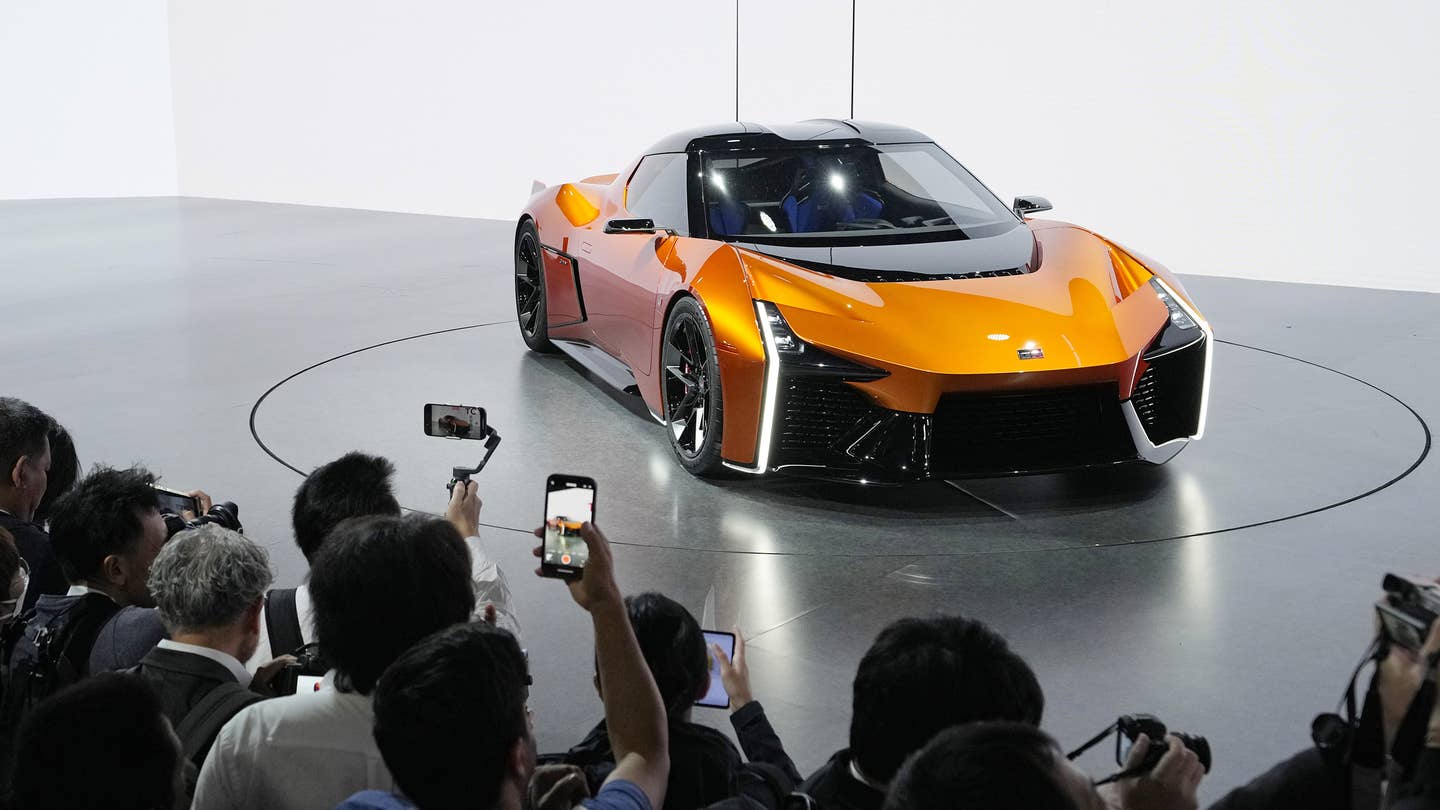Japan’s biggest carmakers are proving there’s no excuse for a lame auto show.

Six months ago, I sat in the bunker-like media center inside Manhattan’s Javits Center with colleagues, debating why and when auto shows got lame. Four cars made their debuts that day, if you count a Subaru Crosstrek with some body cladding and a Jeep Wrangler that only looks different from the old one if you squint.
This isn’t new. Corporate auto shows have been going downhill for years, with a vicious cycle of lackluster product announcements, poor attendance, and disinvestment sapping them of their relevance and fueling an increased focus on private reveals and exclusive events like Monterey Car Week. Then, COVID happened, and automakers have been trying to figure out how to “do” auto shows since.
Japan apparently did not get the message, because the 2023 Japan Mobility Show proved that the land of ramen, manga, and FD RX-7s still knows how to throw down. Previously known as the Tokyo Motor Show, the Japanese Auto Manufacturers Association rebooted and rebranded the bi-annual event after its 2021 event was canceled due to the pandemic. As the name implies, the intent was to broaden the event to include auto- and transportation-adjacent industries—but make no mistake: the focus was on cool cars.



You might have heard Mazda debuted a gorgeous rotary sports car and Honda brought back the Prelude as a hybrid. In addition, Nissan showed off five concepts, including a wild, origami-looking supercar that’s definitely not the next GT-R. Infiniti previewed its first EV with a swoopy sedan, and even Subaru went cyberpunk. Not to be outdone, Toyota unveiled the FT-Se, a wedge-shaped electric sports car that would make a great place to debut its simulated manual transmission.
While not strictly an auto show debut, Toyota also brought out its EPU electric pickup concept, which looks damn near production-ready and features a slick pass-through from its bed to the cabin. Its luxury sibling Lexus debuted a pair of aggressively creased concepts: the LF-ZC, an electric hatchback it plans to sell in 2026, and the LF-ZL, a larger flagship it says will have a 600-mile range thanks to solid-state batteries currently under development.


It wasn’t just the biggest US-known companies making noise. Daihatsu had the cheeriest display in the entire show, with four debuts including the Vision Copen roadster and the Osanpo, a rugged convertible it describes as like “taking a walk while being blown by the pleasant breeze.”
My personal favorite was the Daihatsu meMo, an electric city car that’s customizable from its wheelbase and body panels to its interior. Instead of wheels, it has rolling charm bracelets to which you can plug in 3D-printed dumplings, pigs’ noses, and other whimsical pieces. It’s cheesy, sure, but it also embraces the aftermarket and doesn’t take itself too seriously. Suzuki also pulled the wraps off a new Swift hatchback, and Mitsubishi unveiled a kickass electric van that likely previews the next Delica. From top to bottom, the show buzzed with excitement, both from companies and attendees.



It wasn’t all peachy—the Japanese automakers have long lagged behind on EVs, and for a show supposedly focused on mobility and accessibility, there was a surprising lack of transparent discussion around EV charging infrastructure. Solid-state batteries factored into Lexus’ and Nissan’s concepts but are still a few years off—both companies say we can expect them in production cars around 2028. But the vibes were right, and so were the cars. That’s more than any auto show since the pandemic has been able to say.
Growing up, I looked forward to the LA Auto Show for months. My dad and I spent hours poring over concept displays and sitting in everything we could, because automakers cared about bringing cool stuff to show and tell and not just checking a box. The 2023 Japan Mobility Show recaptured that Christmas-morning feeling that cars are fun and anything is possible. If automakers want to sell people on their vision, their brand, and their cars, isn’t that the goal?

